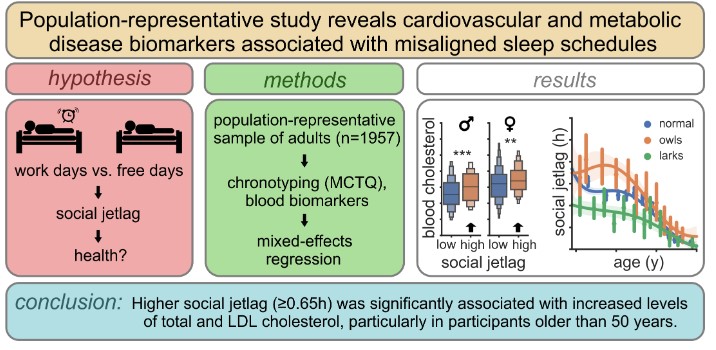Risk factors for cardiovascular and metabolic diseases are associated with misaligned sleep schedules
The most common disruption of circadian rhythms in modern society is the so-called social jetlag, i.e. the chronic mismatch between biological time (chronotype) and social time (e.g. waking up according to the alarm clock). However, it is not entirely clear whether social jetlag has any negative effects on health. A large study on a representative adult population of the Czech Republic, conducted by scientists from the Laboratory of Biological Rhythms of the Institute of Physiology of the CAS and published in the journal Sleep, revealed risk factors for the development of cardiovascular and metabolic diseases that are associated with an incorrect sleep schedule.
The authors of the study examined a unique population-representative dataset including 1957 blood samples of adults from across the Czech Republic with different daytime sleep patterns (chronotype). Nine biomarkers (cholesterol, blood lipids, glucose, cortisol, and others) were analyzed in the samples, and an association between social jetlag and biomarkers of cardio-metabolic health (total cholesterol and LDL levels) was found to be statistically significant, especially in people over 50 years of age. The authors also identified new factors influencing social jetlag in the study, such as commuting time to school or work or stress due to lack of time. The study also showed that flexible working hours effectively mitigate social jetlag.

Sládek M, Klusáček J, Hamplová D, Sumová A: Population-representative study reveals cardiovascular and metabolic disease biomarkers associated with misaligned sleep schedules. Sleep, Volume 46, Issue 6, June 2023, zsad037, IF: 5.6 DOI
